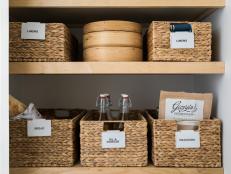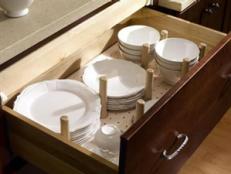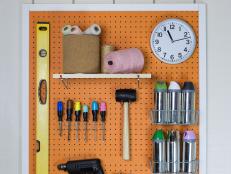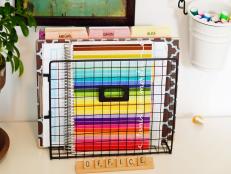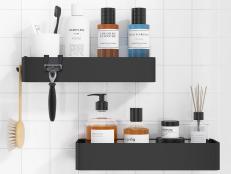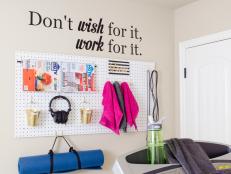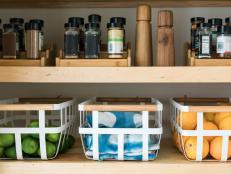Reorganizing Your Medicine Cabinet

When it comes to organization, medicine cabinets are closets in miniature. And if you're like most busy folks, you keep your closet door shut in hopes that no guest ever opens it to find the vacuum hose or a tangle of dirty clothes spilling out. Of course, medicine cabinets are in a highly trafficked room, so keeping them shut tight isn't always a surefire way to hide that clutter of cough syrups, tweezers and aspirin. After all, it is just the place a guest might go for a Band-Aid or a cotton swab or — let's be honest — to just have a snoop around.
So how do you find a place for everything and keep everything in its place in a medicine cabinet? Well, follow the same advice closet organizers have been selling for years: Get rid of anything you're not using. "Most of us are pack rats," says designer Lori Carroll of Lori Carroll and Associates in Tucson. "Go through the medicine cabinet every six months and throw out stuff you don't use." That means discarding tubes of used-up lipstick, rusty nail files and empty Band-Aid boxes.
It also means purging your medicine cabinet of drugs and other products whose expiration dates have passed. Medicines can spoil beyond the date on the bottle. The best way to dispose of drugs is to bring them to a medicine take-back program. If your community doesn't have one, simply mix the unused medication with used kitty litter, coffee grounds or other unappealing trash, seal the mixture in a plastic bag, and dispose of it with your household garbage. That way, children and pets won't be able to get ahold of the medications.
Quick Tips for Getting Organized
- Medical supply stores have great glass surgical jars for storing cotton swabs and bandages. They keep the items dry and within easy reach.
- Only keep the items that you use regularly in the medicine cabinet. Store other items, such as Aloe Vera or extra tubes of antibiotic cream, in a drawer or linen closet.
- Decide exactly what you want to keep in the medicine cabinet and don't deviate from the plan. In other words, don't give in to the temptation to cram stray items into the cabinet when you're in a rush to clean up.
- Consider moving drugs to a different location, such as a high kitchen shelf. High humidity and heat can cause some medicines to lose their potency. Wherever you store your medicines, make sure they are out of reach of children.
- Keep your first aid supplies together so you can find them easily in case of an emergency. You might consider reserving one shelf for emergency supplies such as aspirin, first aid cream and gauze. Or buy a small emergency kit to keep on the medicine cabinet shelf and store the larger boxes of Band-Aids and tubes of antibiotic creams in the linen closet.
- Take advantage of the removable shelves in your medicine cabinet and organize items by size with the taller items on the bottom shelf. Use small plastic organizers to store tweezers, combs and nail files in separate upright compartments.







